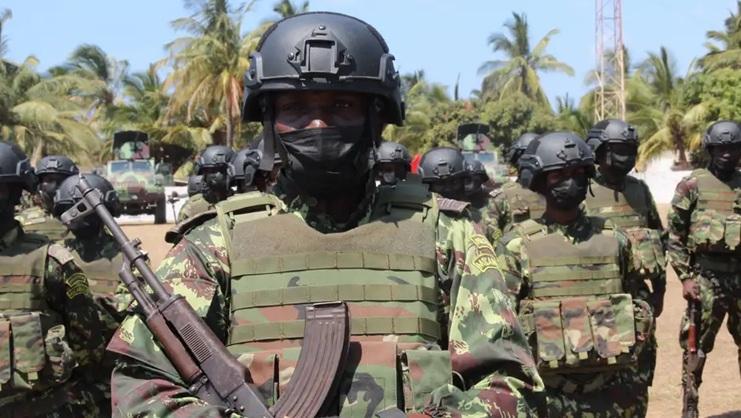Africa-Press – Mozambique. In Mozambique, President Daniel Chapo states that his government is committed to strengthening military capacity to respond more effectively to jihadist terrorism in the northern province of Cabo Delgado.
The territorial integrity of Mozambique is one of the priorities of the Mozambican government, the Mozambican head of state said.
In an interview with DW, Mozambican professor Yussuf Adam argues that a conflict like Cabo Delgado cannot be resolved with bullets alone, but rather, and above all, “through dialogue”.
The historian considers the price of military presence in the region to be “extremely high”.
DW Africa: What solutions to combat the resurgence of violence in Cabo Delgado?
Yussuf Adam (YA): I am a historian and I work on peace issues. In this field, we usually distinguish between positive peace and negative peace. Negative peace is a rotten peace [crumbling peace]. It is one in which the war stops, but the conditions exist for war to continually reignite.
Positive peace is one in which, yes, there is conflict, and disagreements, but there are no deaths, no bullets in the air. So I think that, using these two concepts and this approach to peace studies, we see that there is a solution. And that only solution is to build positive peace. And positive peace, normally, is never created with bullets, right? I mean, we need to talk, we need to study the situation.
DW Africa: And do you think President Daniel Chapo has this approach in mind? What new path does he intend to pursue now in combating the insurgency in Cabo Delgado?
YA: What new path is needed? It’s to talk. We really need to talk with everyone interested, especially the local population. What I’ve seen is that there’s a willingness among people to contribute to peace, to stop the war and the killings, the destruction of property. And increasingly, we’re seeing a series of informal conversations. I mean, the truck drivers who travel along the Silva Macua road to Mocímboa. And people also say they pay ‘X’ when they’re kidnapped; there are negotiations. So, it means we have to seize these opportunities. And the fact that people are tired of war, tired of running from one place to another. And what’s needed is to talk.
DW Africa: But, Professor Yusuf, when Daniel Chapo says he wants more effectiveness to combat the insurgency, he means he wants more bullets, more strength for the Armed Forces. That recipe hasn’t yielded many good results, has it?
YA: It has not, we agree. More bullets don’t solve the problem. Of course, we need our own Army capable of doing things. In fact, the Mozambican Army, the FADM [Mozambican Armed Defence Forces], have shown their worth. Normally, when there’s a good commander, a good team of military leaders in the region, the situation improves. But at an extremely high price. We have the presence of Rwanda, we had the presence of SAMIM [Southern African Development Community Mission in Mozambique]. That’s short-lived.
DW Africa: And Professor Yussuf Adam, have you noticed President Daniel Chapo being more open to dialogue, or is there no difference in that regard compared to his predecessors?
YA: Well, my impression is that the current head of state—who has been in power for a short time, came to power in a still rather contested manner—presents, let’s say, a certain force of trying to resolve matters ‘à paulada’ [‘by force’], which is a tradition here in my country. But I think he’s a person open to dialogue. And these types of statements are also part of this dialogue, which is almost always – as is public – a dialogue of the deaf, isn’t it?
For More News And Analysis About Mozambique Follow Africa-Press






